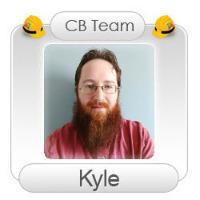


Do you need those activity? and do you need them to also have that flair?I still have the Like and Comment settings enabled under Activity > Article. Should I also move those to Auto Actions?
The complexity in it is you need to have some understanding of what triggers you need and the variables those triggers provide. I've improved things a good bit as it now has a variable output for selected triggers just below the triggers parameter. Generally each persons usage is different from one another; especially conditions. I provide examples using the same format I did above so you're welcome to search our forums for them.I’m now realizing just how versatile Auto Actions is, but it has always seemed to have a steep learning curve. I remember you once said that creating detailed documentation isn’t possible, but that you’re ready to help prepare solutions — and I see you doing that in other threads too. Maybe collecting those ready-made solutions with some basic categorization in one place could help people like me better understand the tool and take advantage of its full potential?
That might be doable. Will add a feature ticket and review when I have further time as I really need to get back to CB Gallery 3.0 or it's never going to get done, lol.if article tags have the same names as flairs, could we automatically assign those corresponding flairs to the activity during its creation?

If I wanted to replace the sample you mentioned, "Test" with a profile field, what would I replace "Test" with in
$row = gj group user objectCode:$_PLUGINS->trigger( 'gj_onDisplayUser', array( &$row, &$counters, &$content, &$menu, $group, $user ) );
$counters = array of content displayed in the footer (where Member is)
$content = custom content displayed below the footer
$menu = custom links for the dropdown menu
$group = gj group object
$user = cb user object
So the below, for example, should work to output whatever profile fields you like.
Global
Triggers: gj_onDisplayUser
Type: Code
User: Automatic
Access: Everybody
Action
Method: PHP
Code:
Code:ParametersCode:$variables['var2'] = 'Test';
Reference Variables: Variable 2
With the above you should see "Test" output in the footer now. Replace that with substitutions or with whatever custom PHP you want. Add more to that array to output more as it'll split them into containers for the footer.

I am looking to do something that is, in a way, the reverse.Global
Triggers: onCPayUserStateChange
Type: Usergroup
User: Automatic
Access: Everybody
Conditions
Condition 1
Field: Custom > Value
Custom Value: [var3]
Operator: Equal To
Value: PLAN_ID_HERE
Condition 2
Field: Custom > Value
Custom Value: [var2]
Operator: Not Equal To
Value: A
Action
Action 1
Mode: Remove Usergroups
Usergroups: REMOVE_USERGROUP_HERE
Action 2
Mode: Add Usergroups
Usergroups: ADD_USERGROUP_HERE
Replace PLAN_ID_HERE with your plans id. That auto action should then fire when their plan expires. If you know they'll only have those 2 usergroups you can just use the Replace Usergroups mode.





